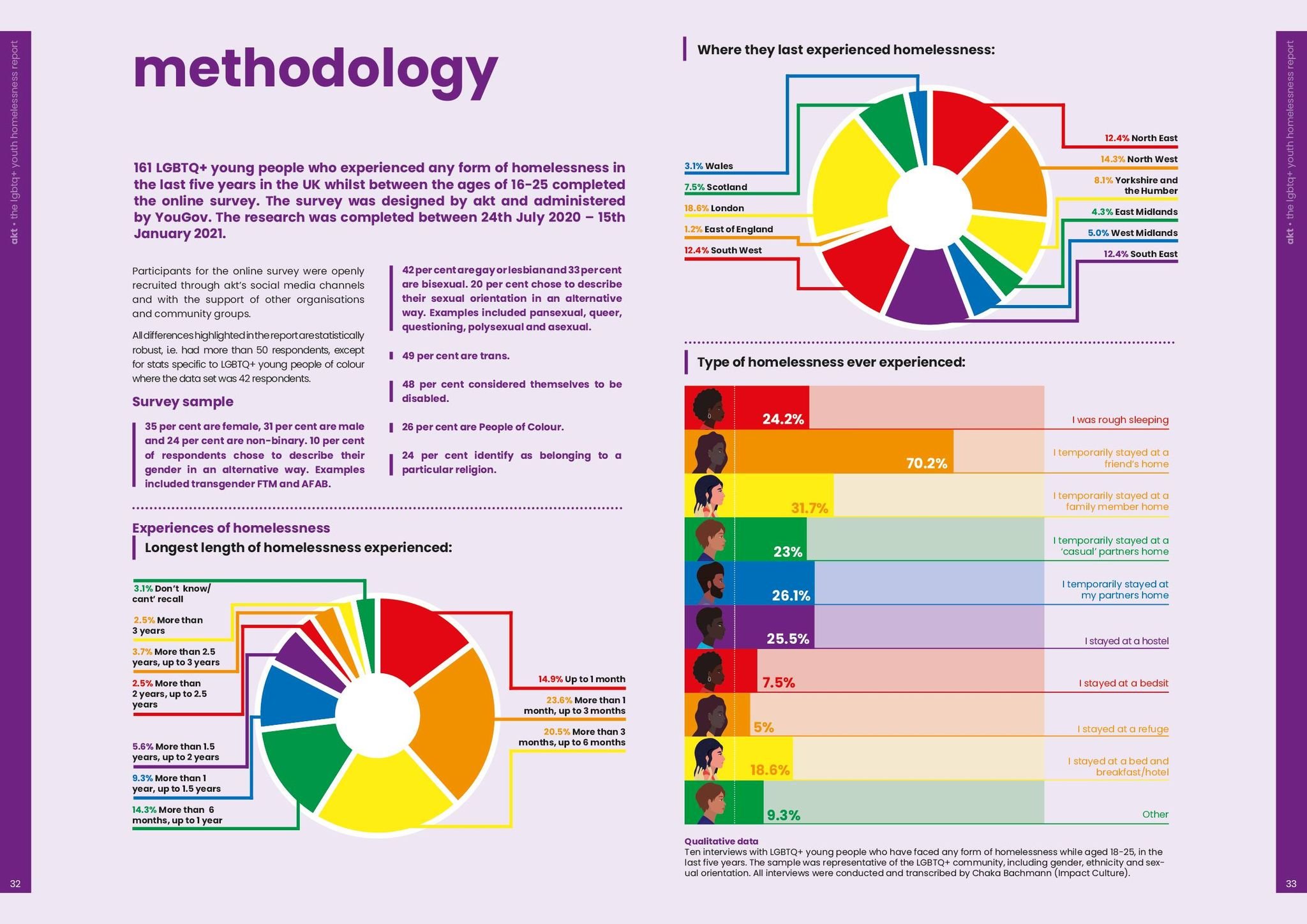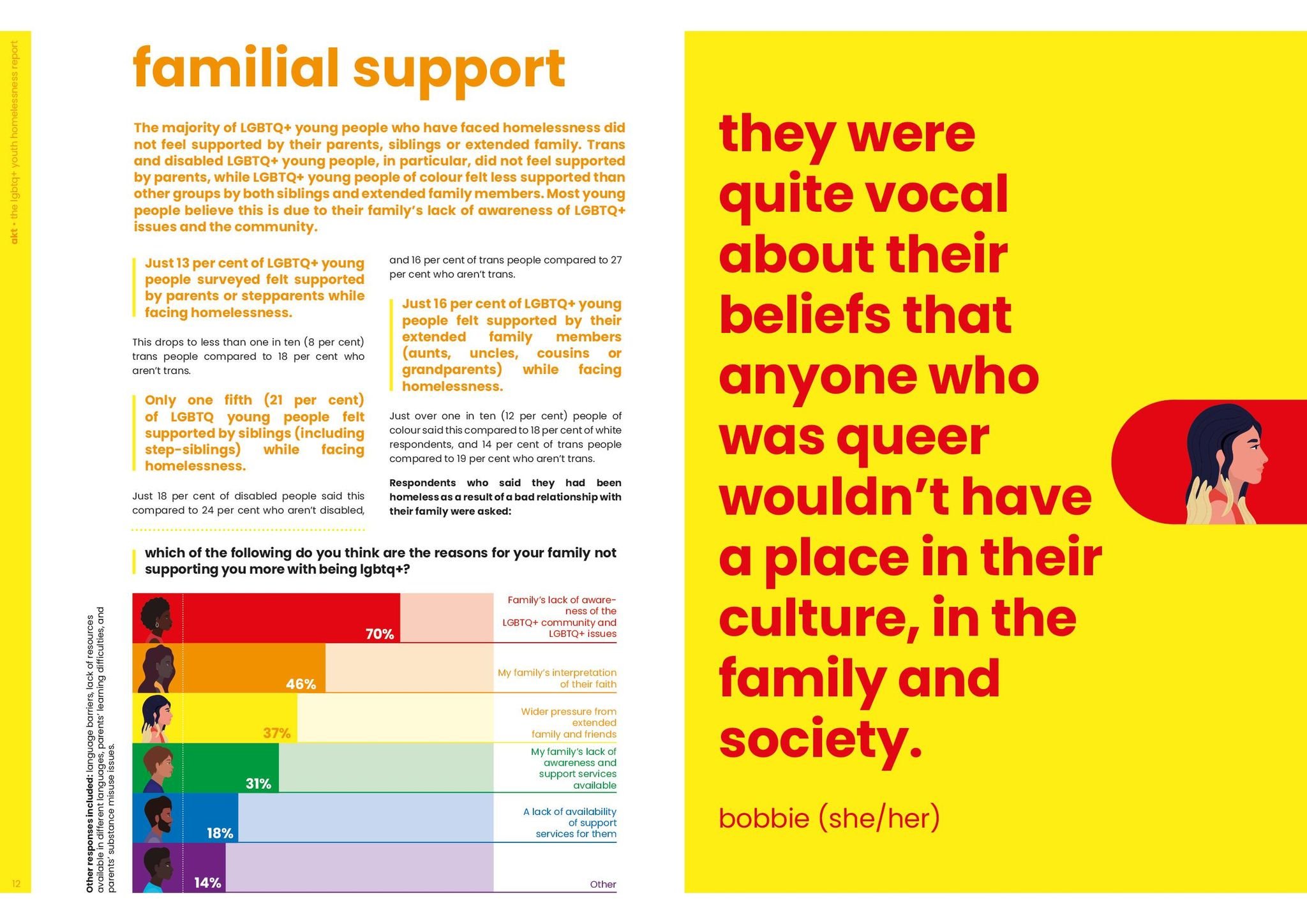The Story Behind U.K.’s First Charity for Homeless LGBTQ+ Young People
A depth shoot of a scene at a pride event. Photo Courtesy of AKT.
By Antonia Rainey | WeINSPIRE Journalist
No matter their sexuality or gender, nobody should go without a home— a statement Cath Hall deeply believes in. Hall, a straight ally, looked after many LGBTQ+ young people as a foster carer in the 80s. She found out that many had terrible experiences in care, some so severe it led some to run away. Seeing a need to find a haven for them, Hall created AKT— the first-ever service in the U.K. to provide safe housing and support to LGBTQ+ young people experiencing homelessness or living in a hostile environment. Since its start in 1989 in Manchester, England, AKT has expanded its resources to include four physical spaces, a digital outpost, and an emergency safe house.
History of Hall’s Activism and AKT
During the 80s, Hall was known for being a dedicated foster carer and activist. Hall was a straight ally involved in The Campaign for Homosexual Equality— an organization founded by LGBTQ+ rights activist Allan Horsfall in 1964, which aimed to decriminalize gay sex and later broadened to advocate for full equality in the 70s. Furthermore, she was a founding member of the organization Manchester Parents Group, which supported families with LGBTQ+ children. Before the creation of the Manchester Parents Group, Hall and her son were a part of the Gay Youth Group; at meetings, Hall heard the worries of children about coming out to their parents and of the sad stories of those who did having their parents react negatively.
Thus, with her experience in activism and working with LGBTQ+ young people, in 1989, at Manchester Town Hall, Hall and six LGBTQ+ volunteers decided to do something big: launch the first homeless service to aid LGBTQ+ young people.
“A dozen people came to a meeting, and about eight or nine of them became dedicated volunteers. It was an emotional response, an angry response, to what was going on at the time,” Cath Hall said in 1990.
Initially based in Manchester, Hall set up the Carer Program, which later became the Host program. The Host Program helped LGBTQ+ young people from ages 16 to 25 find housing accommodations. Soon, AKT grew, including gender identity in their services and having offices in London, Bristol, and Newcastle. In 2017, AKT launched its first national digital service.
"Young people know what they’re talking about. They must be listened to." — Cath Hall, AKT.org.uk
According to the AKT Impact Report 2019-2020, out of the 103,000 young people at risk for homelessness, 24% identify as LGBTQ+. Moreover, AKT’s 2021 LGBTQ+ Youth Homeless Report showed 78% of the young people worked with were homeless due to family rejection.
Dawn Gascoigne, the service manager of the Newcastle office, has worked with LGBTQ+ young people to find accommodations and support since 2007. Because of the stigma, young people face due to their gender or sexuality, Gascoigne said they might not seek out services, believing no one can help them.
"But there are still lots of young people out there who find it difficult to remain in the parental hall because of the abuse which they're experiencing because of rejection,” Gascoigne said.


As such, AKT offers several services to LGBTQ+ young people experiencing homeless which include:
Specialist accommodations and specialized housing
Aid in independent living through providing resources about private rent accommodations and advice from housing specialists
Staying in emergency accommodation at Purple Door, which helps in securing longer-term housing, employment, and money management
Providing access to peer group events and programs like the Youth Engagement Program and life skill training
Digital service and live chat access to those outside of AKT offices
Advocacy is also another service AKT does. Sometimes this comes in the form of getting someone help after housing services may turn them down or letting them know their rights. Other times, AKT might meet with a leader of a local city council to find out what they’ve been doing about LGBTQ+ homelessness.
Connecting Through Online During COVID-19
Gascoigne highlighted how when COVID hit, it was challenging to maintain a connection with young people. With school and university closures, some LGBTQ+ youth had to move back home, some with hostile environments forcing them to either conform or hide their sexual identity.
“And I can remember one young person when we first went into lockdown, they had a pride flag in their bedroom,” Gascoigne recalled, “and their mum decided that she was going to do a deep clean of the whole house and went to the bedroom and found the flag and asked the young person and the young person was absolutely terrified. And said it's to support the NHS and mum just accepted that because of it being the rainbow flag….”
However, AKT has been finding ways to reach out to LGBTQ+ young people through signposting and online. Their live chat services offer young people support from staff, and the digital side of their Youth Engagement Program features a discord in which they can connect with one another. Whatsapp has even been used to help connect with youth in need, demonstrating how AKT has been able to push beyond their physical locations.
“We only used to go to a certain boundary because we couldn't… get people to come into the office. Now we realize that that's just an artificial boundary. You can work past that, and you can work digitally with young people,” Gascoigne concluded.
The Legacy and Future of AKT
Keeping in line with Hall’s legacy, AKT is continuing its outreach with aiding LGBTQ+ youth by looking into establishing relationships with social care housing. Therefore, AKT can move young people into those set accommodations and support them once there. If there is one thing Gascoigne wants people to know about the charity, it’s to include young people who are experiencing hardship in their thoughts and recognize that they just want to a place where they can be who they are.
“I think recognizing the fact that these young people are out there and hidden, I think we [at] AKT want those young people to strive and have a safe home and be able to express who they are,” Gascoigne said.
Photo Courtesy of AKT.
For more information on AKT, visit their website, Twitter, and Instagram. If you or someone else is in need of AKT assistance, visit their get help page. You can support AKT through a donation or volunteering.





